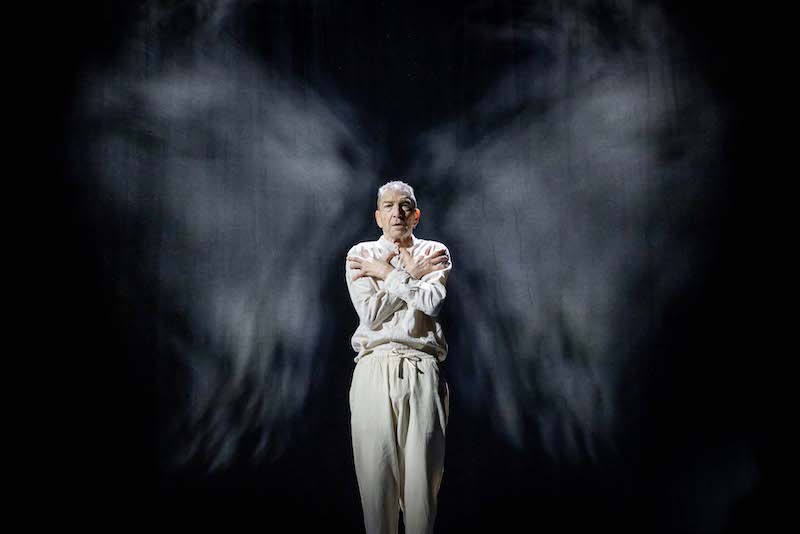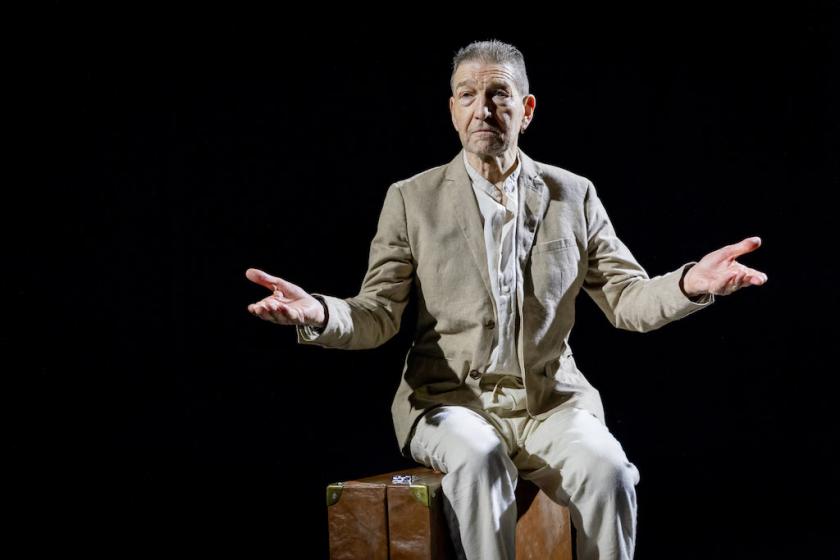Like all great literature, Fyodor Dostoevsky’s final, eccentric, playfully wondrous short story seems to have been written just for us – across two centuries and on the other side of the world. It’s a resonance that ripples through Laurence Boswell’s eloquent, beautifully acted and staged, and sweetly optimistic production.
As sole performer, Greg Hicks is Dostoevsky’s narrator and unnamed protagonist, as well as the numerous people, real and imagined, that the man meets on his journey from suicidal anguish to enlightened optimism, and a new lease of life as an albeit unheeded preacher of “kindness, compassion and love”.
When the story opens, this chap has tried everything that society has proposed – marriage, career, a social life – before losing everything and everyone. After a lifetime of feeling like an outsider, he has entered the slippery final slope, from confusion and pain, via anxiety and depression to choking indifference. He’s bought a gun. Tonight’s the night.
But then he meets a young girl on the street. Though he shuns her desperate pleas for help, in his apartment feelings of compassion and guilt throw a spanner in the works – after all, such thoughts don’t sit too well with nihilism. He puts the gun down, falls asleep, and an intensely vivid dream – a glimpse into a kind of utopia – does the rest.  As adaptor and director, Boswell brings the story from 19th century St Petersburg to 21st century London with no-nonsense economy: the young girl becomes a Kurdish refugee; a raucous party host is now a crack dealer; our protagonist’s last-gasp job is in a bookshop in Dalston, and one of the many derisive put-downs aimed at him, alongside “mad dreamer” and “foolish fantasist”, is the very un-19th century moniker of “space cadet”. One of the play’s many knowing jokes is when our hero admits how difficult it is for “a despicable 21st century Londoner” to understand the simple generosity of the dream world.
As adaptor and director, Boswell brings the story from 19th century St Petersburg to 21st century London with no-nonsense economy: the young girl becomes a Kurdish refugee; a raucous party host is now a crack dealer; our protagonist’s last-gasp job is in a bookshop in Dalston, and one of the many derisive put-downs aimed at him, alongside “mad dreamer” and “foolish fantasist”, is the very un-19th century moniker of “space cadet”. One of the play’s many knowing jokes is when our hero admits how difficult it is for “a despicable 21st century Londoner” to understand the simple generosity of the dream world.
Indeed, it doesn’t take much to apply Dostoevsky’s concerns about the Russian society of his time to today's troubled world; there’s no need to speak specifically of populism, or cancel culture or climate change but these all permeate the production. It’s not a stretch to see Trump in one figure, while the feud that embroils that the ridiculous man inadvertently introduces into the dream utopia is fought between oligarchs and democracy.
This is the latest in a string of single-performer plays that London has staged recently, including Vanya (with Andrew Scott), The Picture of Dorian Gray (Sarah Snook) and Harry Clarke (Billy Crudup). Dressed all in white, with a buzz cut and his hangdog demeanour, Hicks looks like an extra from One Flew Over the Cuckoo’s Nest, which is not entirely inappropriate given his character's isolation. He segues between the different characters, or the ridiculous man’s various states of mind, with deceptive ease – an accent here, a shift of his body weight there, a balletic swirl; the confrontation with the young girl is brilliantly conjured with a baseball cap in his hand. It’s a consummate performance, full of invention, lightness and likeability, that sustains Boswell’s intention to accentuate the positive in the piece.
The imaginative economy of the writing extends to the staging, with fine work by designer Loren Elstein, lighting designer Ben Ormerod and sound designer Gary Sefton. The Marylebone Theatre stage is bare, save for a very large trunk, which contains the few props that Hicks will need. But there’s plenty going on behind and around the actor – back projection, lighting and audio effects, to evoke the bustle of contemporary London, the fellow’s tortured inner life and the Mediterranean idyll of the dream that will save his life.















Add comment